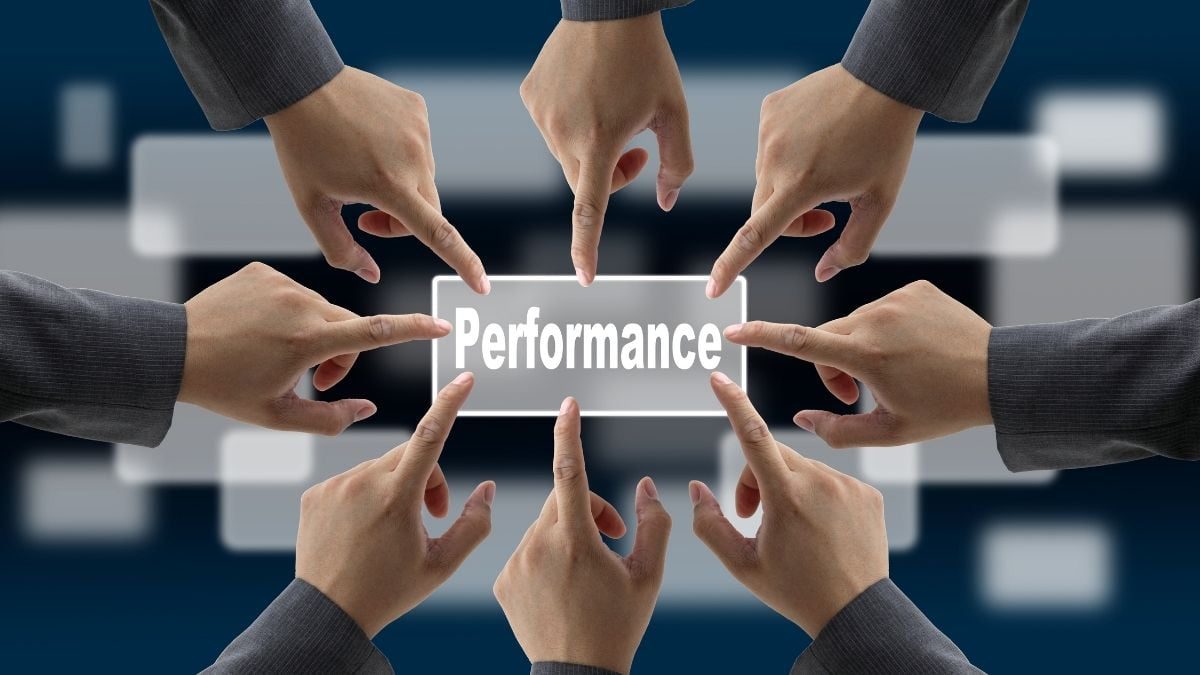Promoting Active Listening and Feedback
Effective communication is not just about sharing information; it also involves active listening and providing constructive feedback. By encouraging team members to actively listen to one another, share their perspectives, and offer constructive feedback, organizations can foster a culture of mutual understanding, respect, and continuous improvement.
Defining a Clear Vision and Objectives
A well-defined vision and set of objectives are the foundation upon which high-performing teams are built. By clearly articulating the team's purpose, desired outcomes, and the overarching organizational goals, team members can align their efforts and work towards a common purpose.
Promoting Equitable Career Development Opportunities
Ensuring that all team members have equal access to professional development, mentorship, and growth opportunities is crucial for cultivating an inclusive and high-performing team. By providing these resources and support, organizations can help team members reach their full potential and contribute to the team's overall success.
Building a High-Performing Team: Essential Elements and Strategies

Key Performance Indicators (KPIs) for Team Performance
Identifying and tracking relevant Key Performance Indicators (KPIs) is a crucial step in assessing team performance. These may include metrics such as project completion rates, quality of work, customer satisfaction, employee engagement, and team productivity, among others. Regularly monitoring and analyzing these KPIs can help teams identify areas for improvement and measure the impact of their efforts.
See more: 123b .com
Data-Driven Optimization and Continuous Improvement
By analyzing the data collected through various measurement and assessment tools, organizations can make informed decisions, identify areas for optimization, and implement continuous improvement strategies. This data-driven approach helps teams adapt to changing circumstances, address emerging challenges, and continuously enhance their performance.
Addressing Conflicts and Disagreements
When conflicts or disagreements arise within the team, it is crucial to address them proactively and constructively. This may involve facilitating open dialogues, encouraging active listening, and guiding team members to find mutually acceptable solutions. By addressing conflicts head-on, organizations can prevent them from escalating and undermining team performance.
Measuring and Assessing Team Performance: Metrics and Tools

Promoting Continuous Learning and Development
High-performing teams are committed to continuous learning and development, constantly seeking ways to improve their skills, knowledge, and processes. Providing opportunities for training, mentorship, and skill-building not only enhances individual capabilities but also strengthens the team's overall competence and adaptability.
Fostering a Supportive and Inclusive Environment
Creating a supportive and inclusive work environment is crucial for team performance. When team members feel valued, respected, and empowered, they are more likely to be engaged, motivated, and willing to take risks. Encouraging open communication, providing constructive feedback, and celebrating successes can all contribute to building a positive team culture.
Leadership and Team Performance: The Role of Effective Leadership
Effective leadership is a crucial component in fostering high-performing teams. Leaders play a pivotal role in setting the tone, shaping the team's culture, and empowering team members to achieve their full potential. By embracing a leadership style that combines vision, empowerment, and support, organizations can unlock the true potential of their teams.
Providing Meaningful Recognition and Rewards
Recognizing and rewarding team members' contributions is a powerful way to boost motivation and engagement. This can take the form of formal recognition programs, public acknowledgments, or opportunities for professional development and career advancement. By celebrating team successes and individual achievements, organizations can foster a sense of pride and ownership among team members.
Conflict Resolution and Team Dynamics: Navigating Challenges and Fostering Collaboration
Effective teams inevitably face challenges and conflicts, and the ability to navigate these situations constructively is essential for maintaining high performance. By developing strategies for conflict resolution and fostering a collaborative team dynamic, organizations can turn potential obstacles into opportunities for growth and strengthened team cohesion.
Artificial Intelligence and Automation
The integration of Artificial Intelligence (AI) and automation technologies into team workflows can significantly enhance performance by streamlining processes, improving decision-making, and freeing up team members to focus on more strategic and creative tasks.
Providing Coaching, Mentoring, and Feedback
Effective leaders understand the importance of ongoing coaching, mentoring, and feedback in driving team performance. By offering constructive guidance, acknowledging team members' strengths, and providing opportunities for professional development, leaders can help individuals and the team as a whole to continuously improve and reach new heights of success.
Remote and Hybrid Work Arrangements
The widespread adoption of remote and hybrid work models has profoundly impacted team dynamics and performance. Organizations must adapt by implementing effective communication, collaboration, and engagement strategies to support distributed teams and maintain high levels of productivity and cohesion.
Conclusion
Boosting team performance is a multifaceted endeavor that requires a strategic and holistic approach. By understanding the key drivers of high-performing teams, implementing effective strategies, and continuously adapting to emerging trends, organizations can unlock the full potential of their most valuable asset - their people. By fostering a culture of teamwork, communication, engagement, and continuous improvement, organizations can position themselves for long-term success in the ever-evolving business landscape.
Developing Conflict Resolution Strategies
Equipping team members with effective conflict resolution strategies, such as active listening, empathy, and win-win negotiation techniques, can help them navigate challenging situations and find mutually beneficial solutions. Providing training and resources on conflict management can empower team members to handle conflicts proactively and maintain a collaborative team dynamic.
Encouraging Cross-Functional Collaboration
Breaking down silos and encouraging cross-functional collaboration can significantly boost team performance. By facilitating interactions between team members with diverse expertise and perspectives, organizations can foster innovative solutions, leverage complementary skills, and enhance overall team effectiveness.
Teamwork is the foundation upon which high-performing organizations are built. When individuals come together, synergize their talents, and collaborate towards a common goal, the results can be truly remarkable. Understanding the key factors that contribute to team performance is essential for cultivating a culture of excellence.
360-Degree Feedback Mechanisms
Implementing 360-degree feedback mechanisms, where team members provide anonymous feedback on each other's performance, can provide a well-rounded perspective on team dynamics, individual contributions, and areas for development. This approach can help team members identify their strengths, weaknesses, and opportunities for growth, fostering a culture of continuous improvement.
See more: go99 live
The Importance of Goal Alignment
Aligning team members around clear, shared goals is the first step towards high performance. When everyone is working towards a common objective, they are more likely to be motivated, engaged, and focused on achieving success. Effective goal setting ensures that team members understand their roles, responsibilities, and the expected outcomes, creating a sense of purpose and direction.
Data-Driven Talent Management
The use of data-driven tools and analytics to assess team performance, identify skill gaps, and inform talent management strategies will become increasingly prevalent. Organizations that leverage these data-driven insights will be better equipped to build and nurture high-performing teams.
Establishing Clearly Defined Roles and Responsibilities
Clearly delineated roles and responsibilities ensure that each team member understands their specific contributions and the value they bring to the team. This clarity helps to minimize overlap, reduce confusion, and foster accountability, enabling team members to work more efficiently and effectively.
Fostering Psychological Safety and Trust
Cultivating a sense of psychological safety and trust within the team is crucial for fostering a collaborative and high-performing environment. When team members feel safe to take risks, express their opinions, and be vulnerable, they are more likely to engage in open and honest communication, embrace constructive feedback, and work together effectively.
Crafting a high-performing team requires a strategic and intentional approach, addressing key elements that contribute to team success. From establishing a clear vision and defining roles to fostering a supportive environment and promoting continuous learning, organizations can implement various strategies to build and maintain a thriving team.
Diversity and Inclusion: Harnessing the Power of Diverse Teams
Embracing diversity and inclusion within teams is a powerful strategy for driving innovation, enhancing problem-solving, and optimizing team performance. By leveraging the unique perspectives, skills, and experiences of team members from diverse backgrounds, organizations can unlock new avenues for growth and competitive advantage.
Encouraging Cross-Cultural Collaboration and Understanding
Facilitating cross-cultural collaboration and understanding within the team can help break down silos, foster mutual respect, and enable team members to leverage each other's unique strengths. This may involve organizing cultural awareness events, facilitating team-building activities, and encouraging regular feedback and open dialogues.